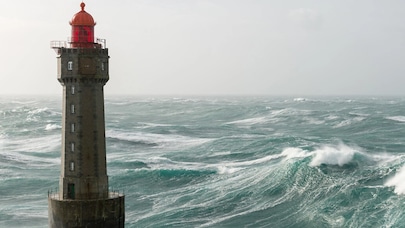15 Apr 2024
Nokia and SURF reach 800Gb/s transmission on existing fiber to prepare for massive upgrade to CERN's Large Hadron Collide
Nokia and SURF, the collaborative organisation for IT in Dutch education and research, have successfully reached a single carrier 800Gb/s optical transmission over SURF’s existing cross border, multi-vendor research and education network infrastructure. The transmission, based on Nokia’s photonic service engine technology, will help accelerate the massive data exchange between the CERN particle accelerator and the NL Tier-1 (NL T1) research IT facilities at SURF and Nikhef, the Dutch National Institute for Subatomic Physics. By reaching 800Gb/s per channel on older fiber varieties, Nokia and SURF prove that existing infrastructure still has tremendous potential, and that legacy optical fibers can be used to meet future capacity demands of the huge data streams generated by international scientific research instruments.
The trial was conducted over a 1648 km point-to-point fiber link connecting Amsterdam and Geneva, crossing Belgium and France. The fiber link is part of the SURF-network, which connects national research and education institutes in the Netherlands, such as Nikhef. Additionally, the SURF-network is also well connected to other research networks and experiments worldwide, including the LHC Optical Private Network (LHCOPN). The LHCOPN provides access to data at the Large Hadron Collider (LHC) at CERN, the world's largest and most powerful particle accelerator. For this trial, CERN, Nikhef, SURF and the ATLAS LHC experiment have collaborated to include real production workflows that are expected when the High-Luminosity Large Hadron Collider (HL-LHC) is operational.
SURF is preparing its network for CERN’s LHC upgrade to the HL-LHC that will become operational in 2029. Trial conducted over 1648 km existing fiber link connecting research facilities at Nikhef, CERN, and SURF. A higher capacity network is needed to upgrade the CERN particle accelerator, which will enable better research and grow data sets by approximately a factor of five. This could fuel new discoveries in fundamental physics beyond 2029. Successful test demonstrates that SURF can increase the capacity of existing network infrastructure to handle some of the largest data exchanges in the world, and shows the interoperability and performance of Nokia's PSE-6s super-coherent optics.

“We are proud to collaborate with Nokia and Nikhef in this successful innovative trial that pushes the limits of our existing fiber and shows us what is possible. This trial is an important milestone for us as we prepare our network for the future demands of scientific research and education, including the upgrade of CERN’s particle accelerator. By emphasizing testing and the adoption of advanced technology, SURF ensures optimal service and support for its research partners' innovative, data-heavy projects and applications.”











